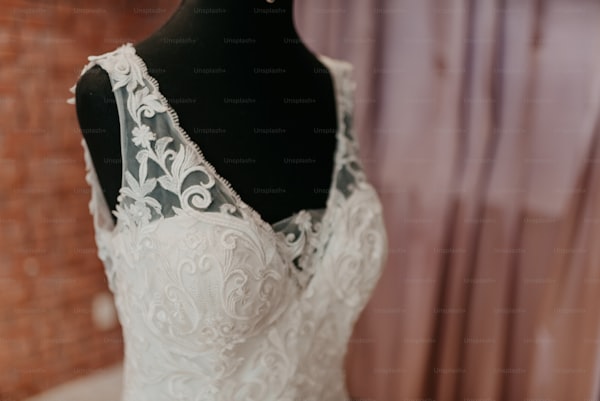Elegant Lace Details: Adding Subtle Touches to Your Wedding Dress
Elegant Lace Details: Adding Subtle Touches to Your Wedding Dress
What Methods Are Used to Add Lace Details to a Wedding Dress Without Overwhelming the Design?
Your wedding dress is not just a garment; it is a symbol of love, commitment, and a dream come true. As you embark on the journey of designing your perfect dress, one key element that often comes to mind is lace. Known for its delicate beauty and timeless appearance, lace can easily transform a simple dress into a stunning masterpiece. However, the challenge lies in adding lace details without overwhelming the overall design. This article explores practical techniques that brides can employ to incorporate lace seamlessly into their Wedding gowns.
The Allure of Lace in Wedding dresses
Lace has been a romantic choice for wedding attire for centuries. Its intricate patterns and soft textures embody elegance and femininity. However, when selecting lace details, it’s crucial to consider the balance of the overall design. Too much lace can detract from the simplicity or primary design elements of the dress.
1. Understanding Lace Types
Before diving into methods of adding lace, it's essential to understand the various types of lace available. Each lace type has unique characteristics that can significantly impact the dress's look. Here’s a concise table summarizing different types of lace:
| Lace Type | Description | Recommended Use |
| Chantilly Lace | Lightweight and delicate, often featuring intricate floral designs. | Adding soft trimmings or overlays. |
| Venise Lace | Stiff and often embellished with more pronounced designs. | For structured details like collars or appliqués. |
| Alençon Lace | Heavier and features embroidered motifs; provides rich texture. | As a full overlay or for dramatic sleeve accents. |
2. Techniques for Incorporating Lace
2.1 Lace Trimming
Lace trimming is one of the most straightforward methods to add subtle lace details. By incorporating lace as a trim along hems, sleeves, or neckline, you can achieve a refined look without overwhelming the dress's core design. Choose a lace that complements the fabric of your dress and ensures that the width of the trim is proportionate to the overall silhouette.
2.2 Lace Appliqué
Lace appliqués are an excellent way to add detail without covering large areas of the dress. These are small pieces of lace that are sewn onto the fabric, allowing you to personalize your design. Consider placing these appliqués strategically—such as around the waist, on the bodice, or sporadically across a flowing skirt—to create visual interest without crowding the dress.
2.3 Layering with Transparency
Another elegant technique involves layering lace over sheer or silk fabrics. This method adds depth and showcases the design without being overpowering. The key is to explore different fabric weights; lighter materials will evoke an ethereal quality, while heavier fabrics add drama.
3. Incorporating Color into Lace
Opting for colored lace can also be an innovative way to introduce lace details without overwhelming the design. For instance, blush-colored lace can be subtle yet striking against a white gown. This method allows you to add dimension and contrast, making your dress unique while maintaining its elegance.
4. Considering Placement and Scale
Careful consideration of where and how you place lace can make a significant difference. Here are a few tips:
- Focus on focal points, like the neckline or waist, where lace can enhance rather than distract.
- Ensure that the scale of the lace patterns corresponds with the overall silhouette. Larger patterns can overpower smaller figures and vice versa.
- Integrate lace into layers of a skirt, allowing it to peek through subtly.
4.1 Drawing the Eye
Lace can also be used to draw attention to specific areas of your dress. By applying lace strategically, such as around the waistline or along the armholes, you can enhance the silhouette while keeping the design fresh and uncomplicated.
5. Personalization Through Lace
Every bride wishes for a personal touch. Consider using vintage lace pieces from family members for a sentimental touch. This method honors tradition and adds uniqueness to your dress. Such personalized elements often resonate with deeper emotional significance, allowing the bride to carry cherished memories on her special day.

6. Balancing Lace with Other Embellishments
When incorporating lace, it’s vital to balance it with other embellishments like embroidery, beading, or sequins. For example, if you opt for heavily detailed lace, consider keeping other embellishments minimal to avoid visual chaos. Conversely, if the lace is simple, additional details can enhance your overall look.
6.1 Choosing Complementary Colors
When including other embellishments, pay attention to color harmony. For instance, gold or silver thread used in embroidery can complement a champagne lace, adding depth without overshadowing the lace details.
7. Working with a Designer
If you're unsure about how to incorporate lace effectively, working with a bridal designer can offer expert insight. A designer can tailor your vision to suit your body shape and personal style, ensuring that lace is included tastefully.
8. Maintaining Functionality
As much as aesthetics matter, functionality should also be considered. Ensure that any lace details do not impede movement or comfort. The wedding day should be filled with joy, not discomfort from a constricting or overly adorned gown.
Conclusion
Incorporating lace details into your wedding dress can elevate its beauty and add a personal touch, but balance is critical. By exploring various techniques such as trimming, appliqué, and layering, you can seamlessly integrate lace without overwhelming the design. The key is to choose the right lace type, consider placement, and ensure that it aligns with your vision and style. Remember, the ultimate goal is to feel comfortable and radiant on your special day. Lace is an exquisite choice, and with thoughtful application, it can be the perfect finishing touch you were searching for. Happy designing!
